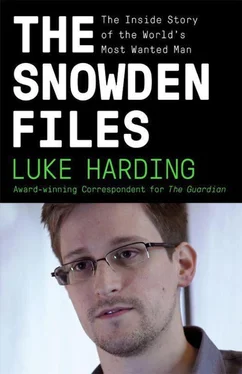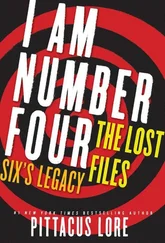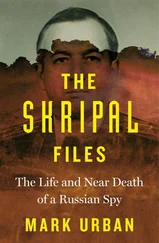Snowden continued: ‘This kind of deception from a world leader is not justice, and neither is the extralegal penalty of exile. These are the old, bad tools of political aggression. Their purpose is to frighten, not me, but those who would come after me.’
The White House had defended the ‘human right to seek asylum’ but was now denying him that option, Snowden said, complaining: ‘The Obama administration has now adopted the strategy of using citizenship as a weapon… In the end [it] is not afraid of whistleblowers like me, Bradley Manning or Thomas Drake. We are stateless, imprisoned, or powerless. No, the Obama administration is afraid of you. It is afraid of an informed, angry public demanding the constitutional government it was promised – and it should be.’
The statement concluded: ‘I am unbowed in my convictions and impressed at the efforts taken by so many.’
The reference to ‘constitutional government’ seemed to be authentic Snowden; his motive for blowing the whistle was the NSA’s infringement of the US constitution. Other parts of the text, though, seemed suspiciously Assangian, especially the second-person line: ‘No, the Obama administration is afraid of you.’ Snowden had previously asked Greenwald to help draft his personal manifesto. Greenwald had declined, though remained Snowden’s most fierce public champion. Now it appeared he had a new literary collaborator. This was J Assange.
On 2 July, the Kremlin hosted a summit of major gas exporters. One of those who flew in for the event was Evo Morales, the president of Bolivia. An indigenous Indian, who had struggled to read his inauguration speech, Morales was no fan of US power. In an interview with the Spanish-language service of RT, Morales was asked about Snowden. Speaking off the cuff, the president said he hadn’t received an asylum request from the NSA whistleblower. But if he did, Bolivia would receive it favourably.
Later that day Morales and his entourage took off from Moscow for home. A couple of hours into the flight the pilot passed on some troubling news: France and Portugal were refusing to allow the presidential plane to use their airspace. The news got worse. Spain and Italy also cancelled air permits. In desperation, the pilot got in touch with the authorities in Austria and made a forced landing in Vienna. What the hell was going on?
Someone in the US intelligence community had tipped off Washington that Morales had smuggled Snowden aboard his jet. An exemplary piece of real-time reporting! They had got him! The only problem was that Snowden was not on board. The White House had pressed the panic button with its European allies because of an intelligence blunder. This may have been the result of clever Russian disinformation. Or a classic CIA goof-up.
In Vienna, the president of Bolivia and his defence secretary Ruben Saavedra sat on an airport couch, aggrieved that the US had had the audacity to humiliate a small sovereign nation. Asked whether Snowden had been smuggled aboard, Saavedra turned white. ‘This is a lie, a falsehood. It was generated by the US government,’ he said. ‘It is an outrage. It is an abuse. It is a violation of the conventions and agreements of international air transportation.’
From the leftist nations of Latin America there were expressions of outrage. Bolivia’s vice-president Alvaro Garcia announced Morales had been ‘kidnapped by imperialism’. Venezuela, Argentina, Ecuador and others issued protests. From the airport’s VIP lounge Morales made telephone calls, seeking to have the airspace bans overturned. His four pilots crashed out on red leather chairs and got a few hours’ sleep. Morales was marooned for 15 hours before he eventually took off again. Once home, he denounced the forced rerouting of his plane as an ‘open provocation’ of ‘north American imperialism’.
It was an ignominious episode. In Washington, the State Department conceded that it had discussed the issue of flights by Snowden with other nations. The US’s cack-handed intervention demonstrated that the caricature of the US as an aggressive playground bully prepared to trample on international norms was on this occasion perfectly correct. But it also demonstrated that Snowden’s plan to get to Latin American wasn’t really viable – unless, perhaps, he was prepared to travel there smuggled aboard a Russian nuclear submarine.
Three weeks after Snowden flew into Russia, Tanya Lokshina received an email. Lokshina is the deputy director of Human Rights Watch in Moscow. Her job is a tough one – defending Russian civil society from a hostile and often aggressive Kremlin. Since Putin’s return to the presidency in May 2011, the job had got even tougher. The president had launched the worst crackdown on human rights since the Soviet era. This came in response to mass protests against his rule in Moscow and, to a lesser degree, in other big cities. The protests began in late 2011, following rigged Duma elections. Lokshina was feisty, fun and fluent in English and Russian. She was one of a defiant band of rights activists.
The email was scarcely believable. Signed ‘Edward Joseph Snowden’, it asked Lokshina to report to the arrivals hall of Sheremetyevo airport. There, ‘someone from the airport staff will be waiting to receive you with a sign labelled G9’. Surely this was some kind of practical joke? ‘The invitation, supposedly from one of the world’s most sought-after people, had a whiff of Cold-War-era spy thriller to it,’ she blogged. She fed her baby with mashed carrots, while juggling calls from the world’s media.
It became clear that the invite was genuine. Airport security phoned up and asked for her passport number. Lokshina got on the airport express train; en route, the US embassy rang her up. An American diplomat wanted her to give a message to Snowden. It said that in the opinion of the US government he wasn’t a human rights defender but a law-breaker who had to be held accountable for his crimes. She agreed to pass this message on.
At Sheremetyevo, Lokshina spotted the man with the ‘G9’ sign. At least 150 reporters had found him too, desperate for any sighting of Snowden. ‘I am used to crowds, and I am used to journalists, but what I saw before me was madness: a tangle of shouting people, microphone assaults and countless cameras, national and international media alike. I feared I might be torn apart in the frenzy,’ she wrote.
The G9 man was wearing a black suit. He announced: ‘Invited guests come with me.’ He led her down a long corridor. There were eight other guests. They included the Russian ombudsman, an MP and other representatives from human rights groups – most independent, but a handful with ties to the Kremlin and its FSB spy agency.
Lokshina was put on a bus and driven to another entrance. And there was Snowden, seemingly in good spirits, and wearing his crumpled grey shirt. With him was Sarah Harrison. ‘The first thing I thought was how young he looks – like a college kid,’ Lokshina wrote. There was also an interpreter.
Standing behind a desk, Snowden read from a prepared statement, his voice rather high and in places croaky. He seemed shy and nervy; this was his first public press conference. It was also a bizarre one. For years, the Kremlin had denigrated human rights organisations for being spies and lackeys of the west. Now they were being courted. The Kremlin was keen to make a political point.
Snowden began: ‘Hello. My name is Ed Snowden. A little over one month ago, I had family, a home in paradise, and I lived in great comfort. I also had the capability without any warrant of law to search for, seize, and read your communications.’
He read on: ‘Anyone’s communications at any time. That is the power to change people’s fates. It is also a serious violation of the law. The fourth and fifth amendments to the constitution of my country, article twelve of the Universal Declaration of Human Rights, and numerous statutes and treaties forbid such systems of massive, pervasive surveillance…’
Читать дальше












